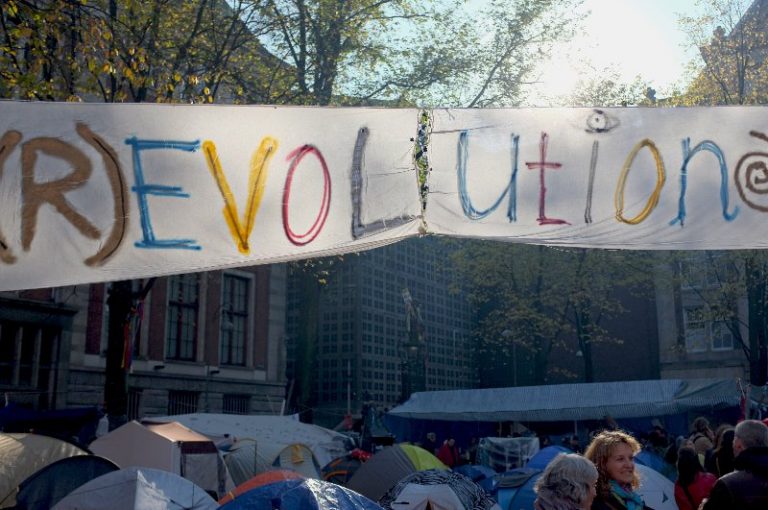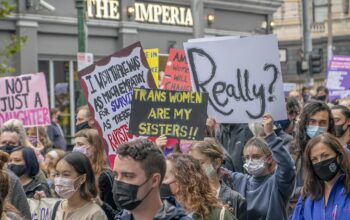Different people live in different realities. We all make diverse experiences, and we value and feel about them in unique ways. Therefore, it is not surprising that we do not all use the same language, and that we do not all use language in the same way. This phenomenon becomes evident in Germany’s ongoing debate on gender-sensitive language, with many young feminists using it as a lever to change the way we perceive and design gender relations in society. Their activism is, however, strongly opposed by linguists, writers; many of who are women and outraged about the unnatural, ineffective and, allegedly, unnecessary nature of the language revolution.
Germany’s Language Revolution
To date, the German language offers a variety of expressions specifically describing a group of students of mixed gender: ‘Studierende’, ‘Student*innen’, ‘Student_innen’, ‘StudentInnen’, ‘Studenten/innen’, or even ‘Studentinnen und Studenten’. These terms have been introduced as more gender-sensitive alternatives to the masculine generic ‘Student’. The demonstrated logic applies to all designations that describe groups consisting of men, women and non-binary people. Especially the ‘gendering’ of job titles has gained increased acceptance and application in the 21st century.
Earlier this year, the German city of Hanover formally introduced the implementation of gender-neutral language in all official communication, including emails, letters, press statements, and brochures. The case of Hanover, and other cities that followed, sparked great controversy between proponents and opponents of expressing gender justice within language.
On the one hand, there are those people whose assertive usage of gender-neutral language in daily conversations is a proof of a deeply gender-sensitive way of thinking and perceiving the world. On the other hand, there are people who argue that making language more gender-just is an unnatural process, the “rape of the German language”, and that formalising gender-sensitive language is ineffective in combating inequality. The controversy has built up to a point where pragmatic arguments have been replaced by emotionally laden judgements from both sides, as is evident in frequently occurring debates on social media.
Controversies: How natural and how effective is gender-sensitive language?
Looking more closely at the criticisms expressed against gender-sensitive language, it is mostly the ‘making’ that is denounced by conservative linguists as “politically motivated adulterations of the German language”. They assert that language is the result of natural mutations, while gender-neutral language represents an unnatural intervention that endangers the whole grammatical system. However, how natural is language at all? It is clearly a product of human interaction, a means of communication, something that evolves with developments in society. As much as we are determined by the rules we give ourselves, we are the ones determining those rules. Our revolution creates the evolution of our language.

Perhaps, the critique of unnaturalness is much rather a cry to protect their comfort zone, and their perceived security. Of course, this security is limited to those who benefit from patriarchal structures, and who therefore see a language revolution as unnecessary. It would endanger the secured position they have in the structure, which creates discomfort in them. Besides those who directly benefit in a patriarchal society, there is a large group of people who simply conform to the dominant paradigm because protesting is exhausting and it cannot promise a more secure and fair structure as an outcome.
Once we have gotten used to gender inequality in all areas of our social life, then we are also used to a language that reproduces inequality. Maybe the generic masculine isn’t that much of a problem after all? On social media, there are many feminine voices asserting that they do not care what they are being called, as long as they know that they are meant to be addressed and included. They do not believe that language shapes our perception, therefore, it does not matter how we term things and people. One famous argument is that since Angela Merkel could make it despite her job title being announced as ‘Kanzler’, not ‘Kanzlerin’, our language does not cause any problems of inequality.
How does language shape our perception of reality?
Language is a huge part of human life. We use it to communicate all kinds of messages about the world around us, and we make sense of this reality through language. Of course, as argued by many opponents of gender-sensitive language, a word in isolation does not carry meaning and cannot make a change. However, considered in a certain context, words obtain meaning, as they are spoken by one person to another person through language in order to send a certain message. Therefore, the way in which we use the language matters in that it changes our mindset through a certain meaning we create out of it. The newly developing mindset will make us perceive a new kind of reality with new opportunities and limitations.
If my reality is that ‘Krankenschwestern’ and ‘Putzfrauen’ (literally: ‘Sick peoples’ sisters’ and ‘Cleaning women’, translated as nurses and cleaners) are supposed to be women as they are specifically addressed in the job title, I will be more likely to identify with these professions. And if I, as a young woman, am verbally encouraged to consider a career as a ‘Bundeskanzler*in’ (chancellor) or ‘Geschäftsführer*in’ (manager), this opportunity will sound a lot more realistic to me. Instead of being determined by the limitations of my language, I get to make a choice between cleaning and making politics.

The question remains: If we can use language positively by directly encouraging young females that they are considered in and cared about by society, and that they clearly have a space in various male-dominated spaces, why would we refuse to do so?
How can we move forward towards a more gender-just society?
We all have our opinions on questions of gender justice, which is hardly surprising, as our experiences and social realities are unique. All in all, it cannot be predicted that a change in language will generate more just structures, because we cannot fully grasp the causal relations between language and social change. This leads us to the debate on what has to change first – our language, or our social structure? At this point, we are facing a typical chicken-and-egg-problem. And we are stuck, because all of our attention and efforts to make positive change towards a more gender-just society are absorbed by this one fundamental debate.
The way to go might be simpler than we expect. Basically, we need to decide how much energy we put into discussing and disagreeing on the ‘how’ of achieving gender justice, and how much energy we can use to make positive change. Surely, we should not completely skip debating, because it can be fruitful and help us understand our pluralist society. But once the conversation thwarts and paralyses us, it is time to move on. What is in our might to create positive change? What kind of reality do we live in? Are women and LGBTQ+ people represented in the language that constitutes our reality? If they aren’t, the most fundamental step will be making them visible by verbally highlighting and celebrating their spaces and achievements in our society.
The spark of a revolution lies in the dissatisfaction and disagreement on some perceived social injustice of a group of people. Once these negative emotions and attitudes can be translated in a positive manner, as in a certain systematic change that is aspired, the revolution evolves. This is because ideas are powerful, and once a change can be imagined, we already live, to an extent, in a changed reality. We are starting to perceive situations differently as we direct our attention to certain variables and reflect critically upon them, and so our reality is different from the one we used to live in before. As it relates to language, it evolves as we adjust it to our reality, knowingly or unknowingly. That means, if our mindset is revolutionist as it perceives structural inequality, we will naturally make efforts to generate more equality through the way we express ourselves in language.
by Ellen Wagner
Photo Credits
Politics 11, Erik, CC BY-SA 2.0
Speech Balloon, Marc Walthieu, CC BY-NC 2.0










